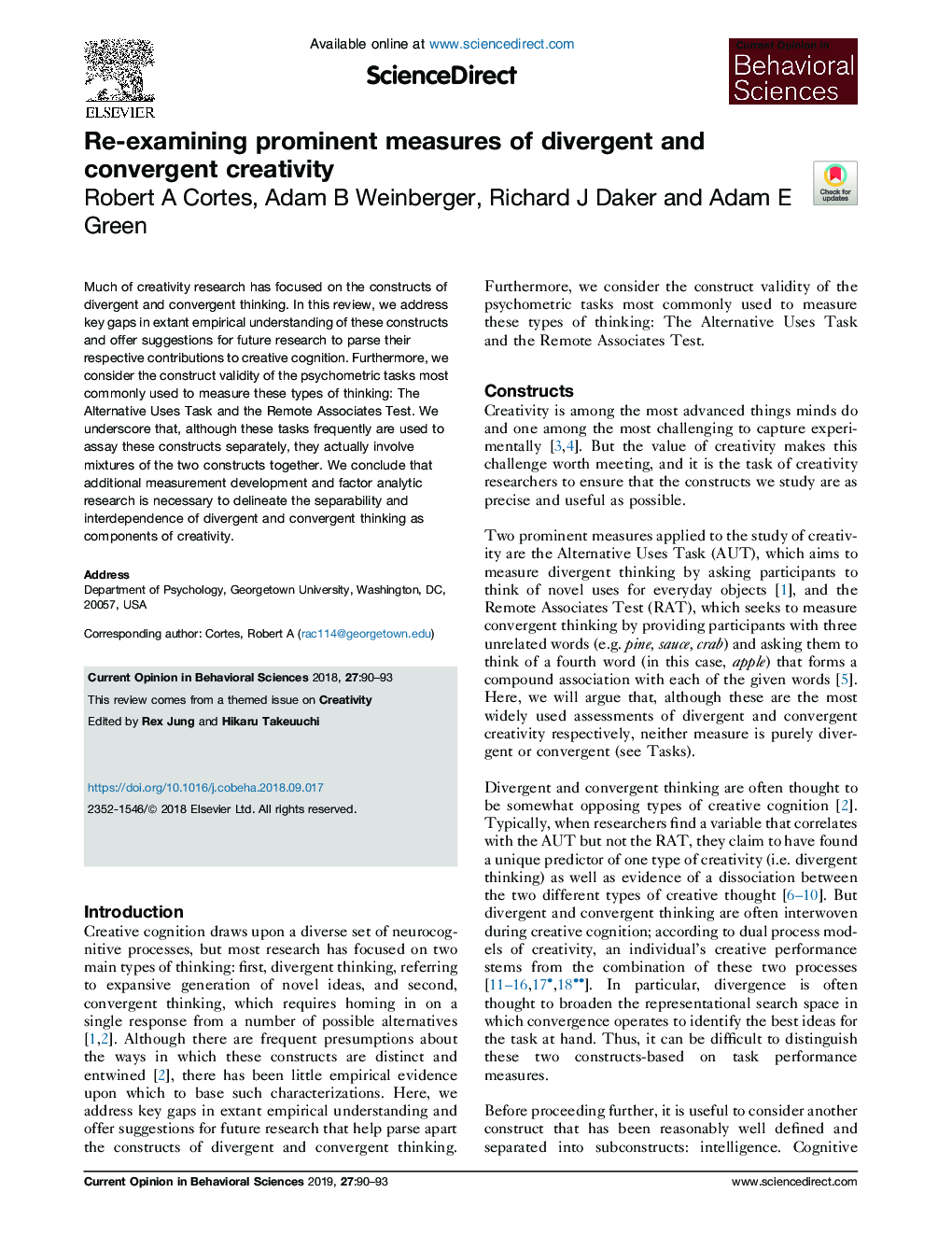| کد مقاله | کد نشریه | سال انتشار | مقاله انگلیسی | نسخه تمام متن |
|---|---|---|---|---|
| 11028732 | 1646740 | 2019 | 4 صفحه PDF | دانلود رایگان |
عنوان انگلیسی مقاله ISI
Re-examining prominent measures of divergent and convergent creativity
ترجمه فارسی عنوان
دوباره بررسی معیارهای برجسته خلاقیت واگرا و همگرا
دانلود مقاله + سفارش ترجمه
دانلود مقاله ISI انگلیسی
رایگان برای ایرانیان
ترجمه چکیده
بیشتر تحقیقات خلاقیت بر ساختار تفکر واگرا و همگرا متمرکز شده است. در این بررسی، ما شکاف های کلیدی در درک تجربی موجود از این سازه ها را ارائه می دهیم و پیشنهادات مربوط به تحقیقات آینده را برای تجزیه و تحلیل مشارکت های خود در شناخت خلاق ارائه می دهیم. علاوه بر این، ما اعتبار سازه ای از وظایف روان سنجی را که معمولا برای اندازه گیری این نوع تفکر استفاده می شود، مورد بررسی قرار می دهیم: تابع استفاده از جایگزین و آزمون همبستگی از راه دور. ما تاکید می کنیم که اگرچه این وظایف اغلب برای تجزیه و تحلیل این سازه ها به طور جداگانه مورد استفاده قرار می گیرند، اما در واقع شامل ترکیب دو ساختار می شوند. ما نتیجه گرفتیم که توسعه اندازه گیری اضافی و پژوهش تحلیلی عامل، ضروری است تا تفکیکپذیری و وابستگی متقابل تفکر واگرا و همگرا را به عنوان مولفه خلاقیت مشخص کنیم.
موضوعات مرتبط
علوم زیستی و بیوفناوری
علم عصب شناسی
علوم اعصاب رفتاری
چکیده انگلیسی
Much of creativity research has focused on the constructs of divergent and convergent thinking. In this review, we address key gaps in extant empirical understanding of these constructs and offer suggestions for future research to parse their respective contributions to creative cognition. Furthermore, we consider the construct validity of the psychometric tasks most commonly used to measure these types of thinking: The Alternative Uses Task and the Remote Associates Test. We underscore that, although these tasks frequently are used to assay these constructs separately, they actually involve mixtures of the two constructs together. We conclude that additional measurement development and factor analytic research is necessary to delineate the separability and interdependence of divergent and convergent thinking as components of creativity.
ناشر
Database: Elsevier - ScienceDirect (ساینس دایرکت)
Journal: Current Opinion in Behavioral Sciences - Volume 27, June 2019, Pages 90-93
Journal: Current Opinion in Behavioral Sciences - Volume 27, June 2019, Pages 90-93
نویسندگان
Robert A Cortes, Adam B Weinberger, Richard J Daker, Adam E Green,
